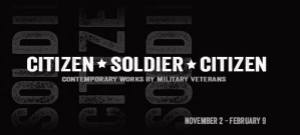In his basic composition course, Michael Lund used poet Gabriel A. Tolliver’s recently published piece (In the inaugural issue of The Blue Falcon Review) “The Afghan Blood House.” As Lund explained, Tolliver’s piece helped elucidate the concept of plot, “I tell them [his students] sometimes hands–images of hands–are a shortcut to agency, to who has and uses power. Still hands can mean lack of agency, injured hands loss, fists resolution, etc. So this was a great story…” (Lund para. 1). Revealing further details of his lesson plan using Tolliver’s short story, Lund explained: “I asked [students] what the hand prints represent in the story (getting eventually to both agency and, when annotated, signatures). Asked what kinds of hands, though unseen, were doing things (got healing and killing). Asked what the wounded soldier’s hand represented (got them to comradeship, handshake, connection), what the blood smear meant (arrived at loss of identity and life itself), asked whose hand the narrator touched (comrades but also, they finally realized, ourselves, the readers). The hands in the story pull us into conflict, lift us up and drag us down, draw us on and tug us back” (Lund para. 2).
Lund expressed gratitude to Tolliver for his great work, which allowed his students to better understand elements of literature and storytelling. In sharing Lund’s lesson plan we hope other teachers, writing workshop leaders, writing center tutors / coaches / mentors, etc. will look to the published work in our journals The Blue Falcon Review, The Journal of Military Experience and the Arts, and Blue Streak: A journal of military poetry in their efforts in the teaching of writing.
References:
Lund, Michael. Personal email to author. 26 Nov. 2013. Web.





